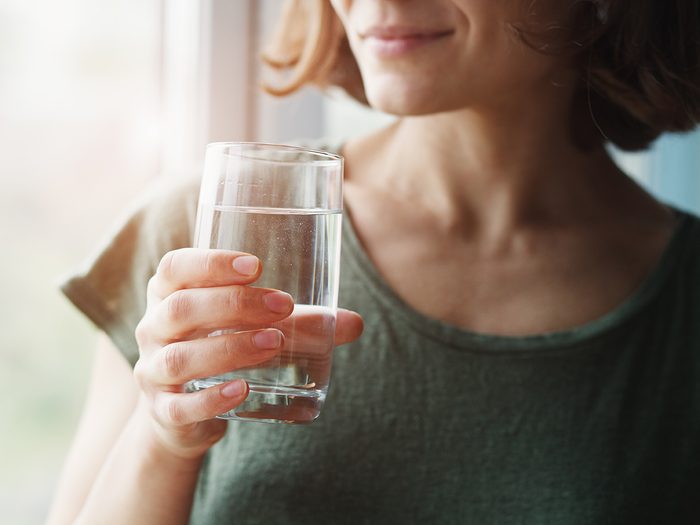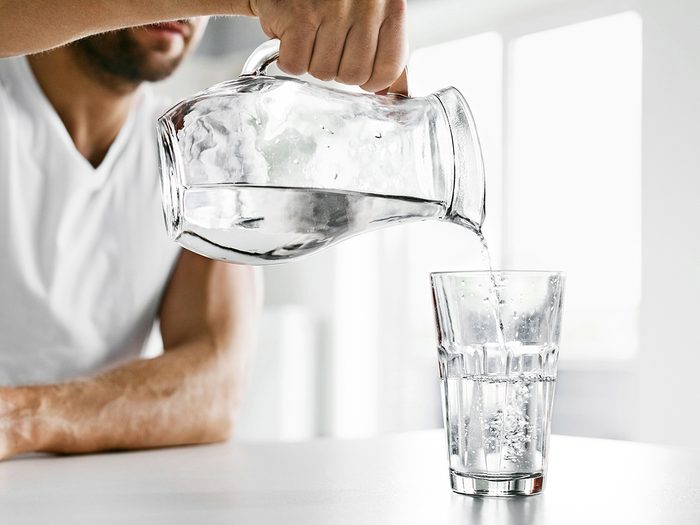
How much water you should drink is more complicated than “eight glasses a day”
Compared to younger people, seniors must take extra care to get enough fluids. With age, thirst—the body’s built-in dehydration alarm system—becomes less noticeable and reliable. Older people also tend to have modest appetites, which means they receive less fluid from food. Meanwhile, due to declining kidney function, their bodies often aren’t as good at conserving the water they do get.
The amount of fluid we need to feel our best varies according to factors such as physical activity levels, physiology and climate. As a rough guideline, the Dietitians of Canada suggest 2.2 litres (nine cups) per day for women and three litres (12 cups) for men. These totals include food moisture, which accounts for about one-fifth of the average person’s liquid intake—and more for people who eat a lot of fruit and veggies. Keep in mind that you’ll need extra fluids if you’re exercising, if the weather is hot or if you’re somewhere with indoor heating, which can drain moisture from your skin.

Drink more than just water to stay hydrated
If you don’t like to consume a lot at once, try increasing the frequency of your drinks. Vary your sources of fluid if that makes it easier to stay hydrated—besides water, consider beverages such as juice, milk and soup. Even coffee and tea can work, despite the caffeine’s mild diuretic effect—they provide more water than they drain.
Find out the best (and worst) drinks to keep you hydrated.

Recognize the signs of dehydration
If your urine is dark or has a particularly strong smell, you may not be getting enough fluids to stay hydrated; other signs of early-stage dehydration include a dry mouth, headaches, dizziness, fatigue and irritability. Left unaddressed, the problem can cause a racing heart, delirium or a loss of consciousness, and sufferers may require intravenous hydration from medical professionals.
Here are 20 symptoms you should never ignore.

Beware of chronic dehydration
In everyday life, milder bouts of dehydration are commonplace. But take note: “When mild dehydration is chronic,” says Ron Maughan, chair of the European Hydration Institute‘s Science Advisory Board, “it can have adverse effects, especially renal [kidney] stones.” If you suspect poor hydration might be dragging you down, the remedy is simple: drink up.
Now that you know how much water you should drink, brush up on the health benefits of staying hydrated.